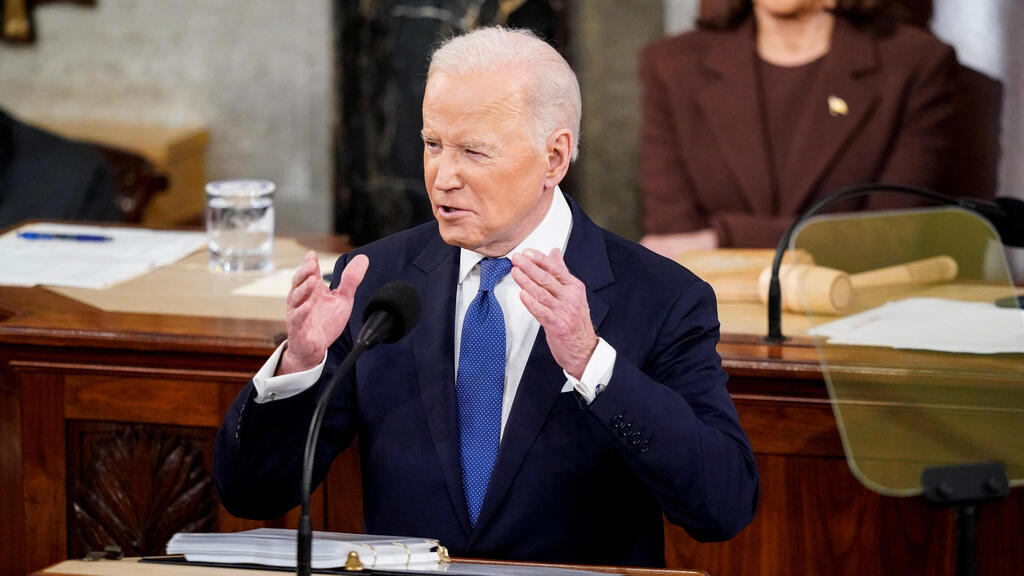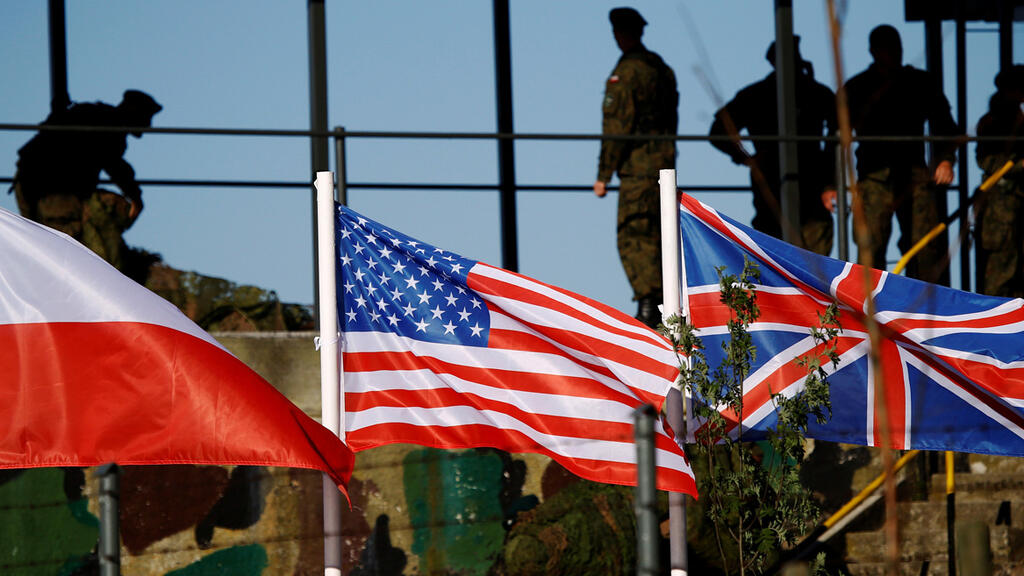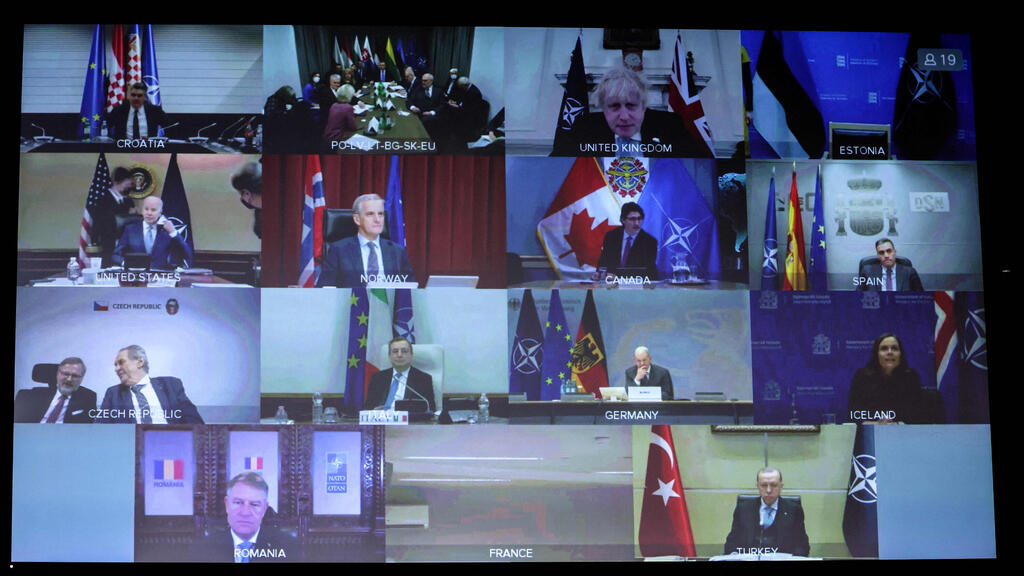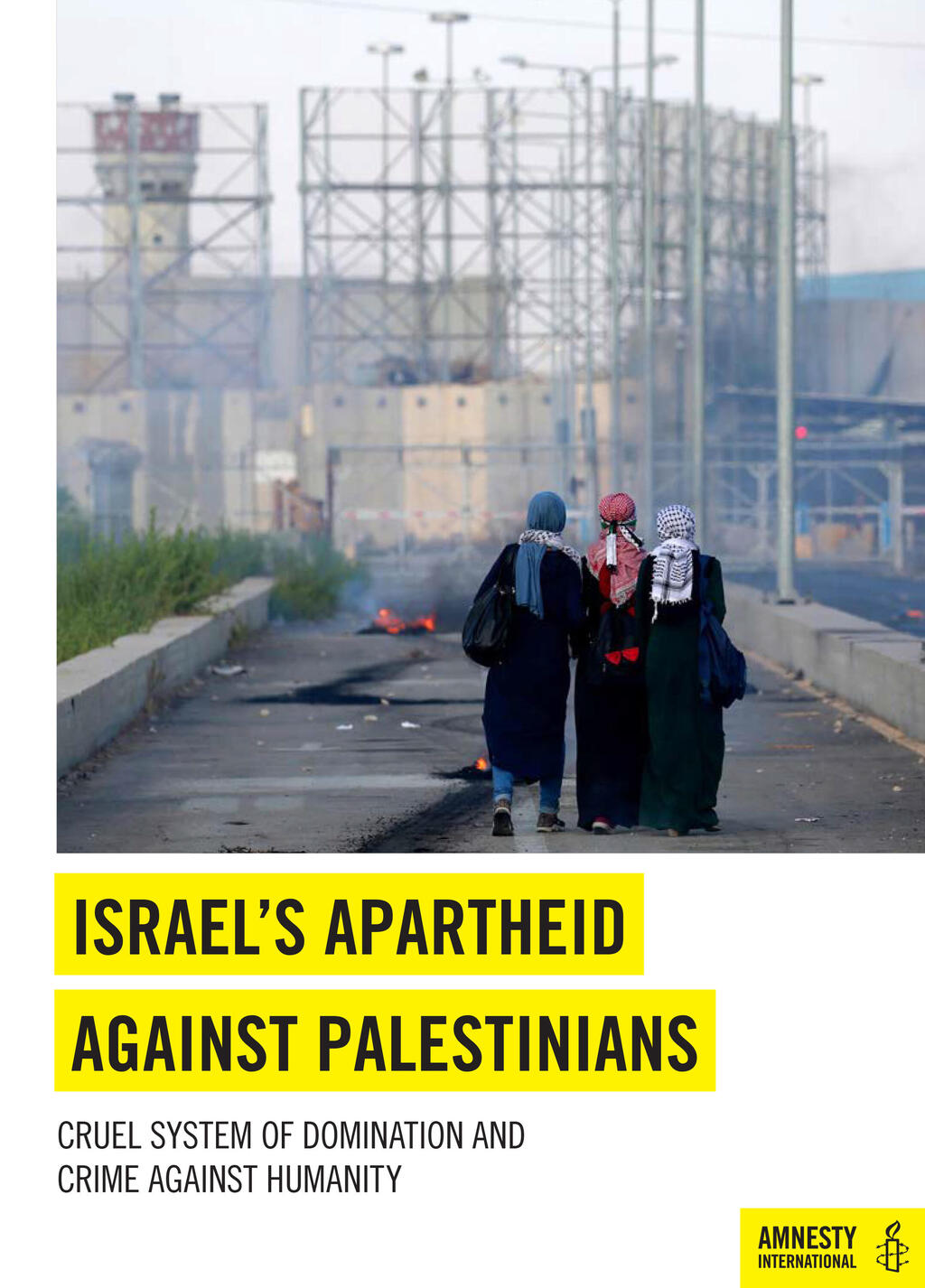Getting your Trinity Audio player ready...
There is international consensus on who the good and bad guys are in the bloody war taking place in Ukraine.
The world almost unanimously condemns Russia's invasion, stands behind Ukraine, and either supports or contributes to the harsh sanctions being inflicted on Russia.
4 View gallery


Biden's state of the union speech, speaking about the Russia-Ukraine war last week
(Photo: POOL)
But, one thing has been made clear from the beginning: Western armies will neither protect Ukraine nor ensure the continuation of its sovereignty.
U.S. President Joe Biden announced that under no circumstances would he send his soldiers - neither through land or air - to fight for Ukraine. The nearer strong European countries are also not considering getting their armies involved.
There is a strong consensus that if Russia were to attack a NATO member state, an immediate military response would ensue. This is where the Western states draw a red line.
The new world order that is being built, reflects the lessons learned from the military adventures waged in far away battle fields, which have predominantly ended in failure.
Meanwhile, the U.S. and Europe are strengthening the solidarity between them with the rule of thumb being: NATO member states are protected, while non-members are much more vulnerable.
The NATO treaty states that "the parties agree that an armed attack against one or more of them in Europe or North America shall be considered an attack against them all," while an attack on a non-member country provides no grounds for military involvement.
This standard, being clearly practiced in Ukraine, is a warning sign for Israel. If Israel was to be attacked in the future, by Iran for example, there would be international support and sympathy, but not much more. Israel, therefore, must do everything it can to avoid being in Ukraine's position.
For NATO to consider integrating Israel or upgrading its status, Israel must make major steps towards ending the Palestinian conflict. A visit to Moscow won't do much for upgrading Israel's status in NATO, one to Ramallah on the other hand...
Another lesson Israel should learn from this war is avoid being perceived as "the Russia" of its potential, future conflicts. Already, some are comparing between Israel and the Palestinians and the Ukraine war.
When the fighting in Ukraine comes to an end, international attention will turn back to the Middle East, and will include demands for answers about Israel's control over millions of Palestinians.
Foreign Minister Yair Lapid has already expressed concern after Amnesty International defined Israel as an apartheid state.
The safest way to avoid being in Russia's position is to advance policies that promote an end to the Israeli-Palestinian conflict.
This would and provide the legitimacy needed from the international perspective, and thus strengthen Israel's position should it come under international condemnation, and is crucial for its security in the new world order.




